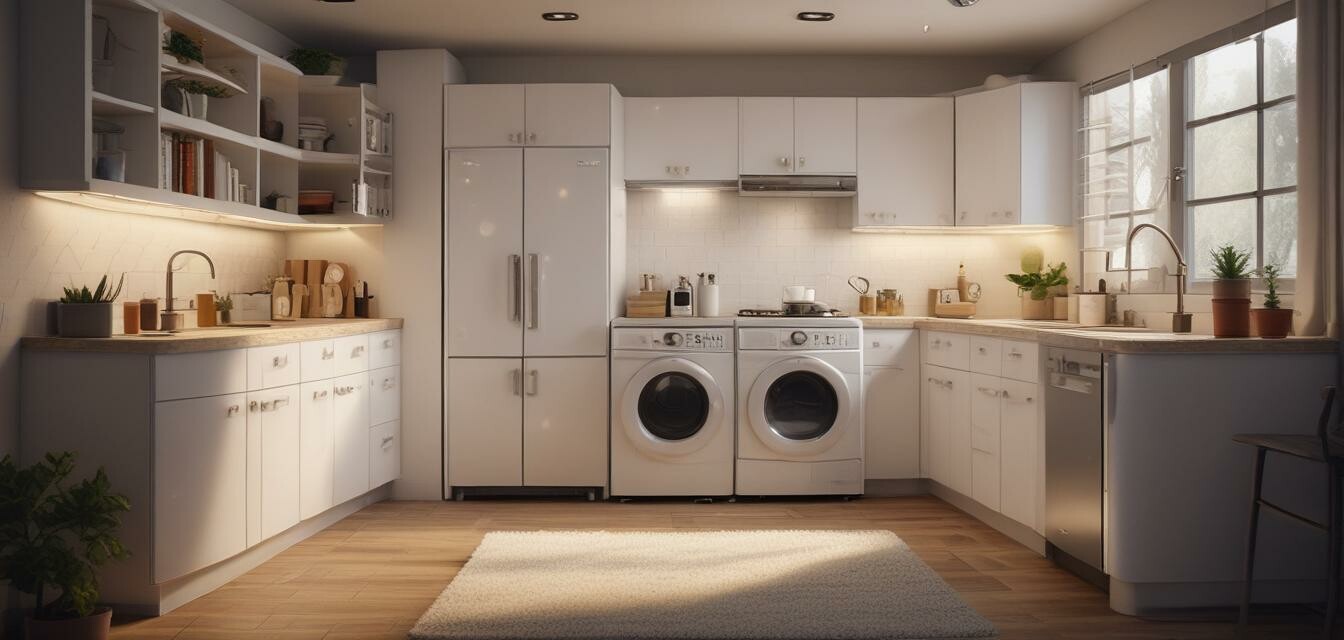
The Best Practices for Managing Energy Use in Rentals
Key Takeaways
- Understanding energy-efficient appliances is essential for tenants and landlords.
- Simple usage habits can significantly reduce energy consumption.
- Proper maintenance of appliances maximizes efficiency.
- Open communication between tenants and landlords fosters energy conservation.
- Utilizing smart technology can help monitor and control energy usage.
Managing energy use in rental properties is crucial for both tenants and landlords. With the rising costs of energy, it's essential to adopt best practices that not only save money but also contribute to sustainability. This article will explore effective strategies for various stakeholders involved in rental properties, focusing on energy-efficient appliances and smart usage habits.
Understanding energy-efficient appliances
Energy-efficient appliances consume less electricity, which not only reduces energy bills but also decreases your carbon footprint. Here are some examples of energy-efficient appliances you should consider:
| Appliance Type | Benefits |
|---|---|
| Refrigerators | Save on energy bills with models rated for high efficiency. |
| Washing Machines | Front-load machines use less water and energy. |
| Air Conditioners | Energy Star-rated units lower cooling costs. |
| Dishwashers | Modern dishwashers use less water and power. |
| Microwave Ovens | Quick cooking reduces energy use compared to traditional ovens. |
Best practices for tenants
As renters, it’s important to adopt certain habits that will help in managing energy consumption effectively. Below are some tips to help make a difference:
Tips for tenants
- Always unplug appliances when not in use to avoid phantom energy draw.
- Use energy-efficient light bulbs like LEDs to reduce energy consumption.
- Set your thermostat efficiently, adjusting the temperature appropriately when away.
- Optimize appliance load by washing full loads in your washing machine and dishwasher.
- Maximize natural light during the day instead of relying on artificial lighting.
Best practices for landlords
Landlords play a significant role in promoting energy efficiency within their properties. Here are some practices to consider:
Tips for landlords
- Invest in energy-efficient appliances and systems for your rental properties.
- Encourage tenants to adopt energy-saving habits through informative materials.
- Regular maintenance of appliances ensures they operate efficiently.
- Consider offering incentives for tenants who maintain low energy usage.
- Upgrade insulation and windows to reduce heating and cooling costs.
Importance of communication
Effective communication between tenants and landlords is vital to achieving energy efficiency in rentals. Regular discussions can pave the way for better energy management. Here are some strategies:
- Schedule periodic meetings to discuss energy usage and ways to improve.
- Share insights on appliance efficiency and maintenance tips.
- Provide tenants with resources about energy-saving programs and rebates.
Utilizing smart technology
Smart technology offers innovative ways to manage energy use in rental properties. Here’s how:
| Smart Device | Description |
|---|---|
| Smart Thermostats | Allows remote control and temperature scheduling for energy savings. |
| Smart Plugs | Enable remote control of appliances, reducing unnecessary power usage. |
| Smart Lighting | Schedule and control lighting remotely for optimal energy management. |
Conclusion
By adopting these best practices, both tenants and landlords can contribute to a more sustainable living environment while saving on energy costs. Recognizing the benefits of energy-efficient appliances, improving usage habits, and fostering communication will lead the way to greater energy savings. For further insights into energy-efficient appliances, check out our guides on air conditioners, dishwashers, and tips and how-to articles.
